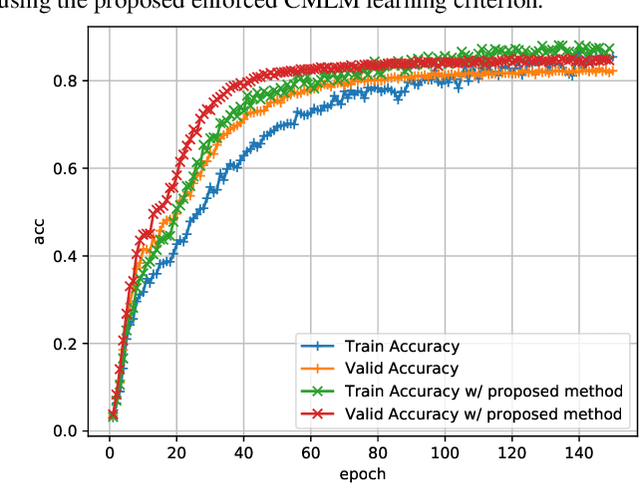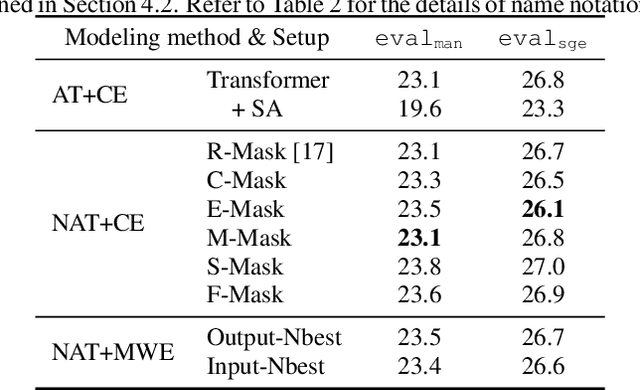Minimum word error training for non-autoregressive Transformer-based code-switching ASR
Paper and Code
Oct 07, 2021



Non-autoregressive end-to-end ASR framework might be potentially appropriate for code-switching recognition task thanks to its inherent property that present output token being independent of historical ones. However, it still under-performs the state-of-the-art autoregressive ASR frameworks. In this paper, we propose various approaches to boosting the performance of a CTC-mask-based nonautoregressive Transformer under code-switching ASR scenario. To begin with, we attempt diversified masking method that are closely related with code-switching point, yielding an improved baseline model. More importantly, we employ MinimumWord Error (MWE) criterion to train the model. One of the challenges is how to generate a diversified hypothetical space, so as to obtain the average loss for a given ground truth. To address such a challenge, we explore different approaches to yielding desired N-best-based hypothetical space. We demonstrate the efficacy of the proposed methods on SEAME corpus, a challenging English-Mandarin code-switching corpus for Southeast Asia community. Compared with the crossentropy-trained strong baseline, the proposed MWE training method achieves consistent performance improvement on the test sets.
 Add to Chrome
Add to Chrome Add to Firefox
Add to Firefox Add to Edge
Add to Edge